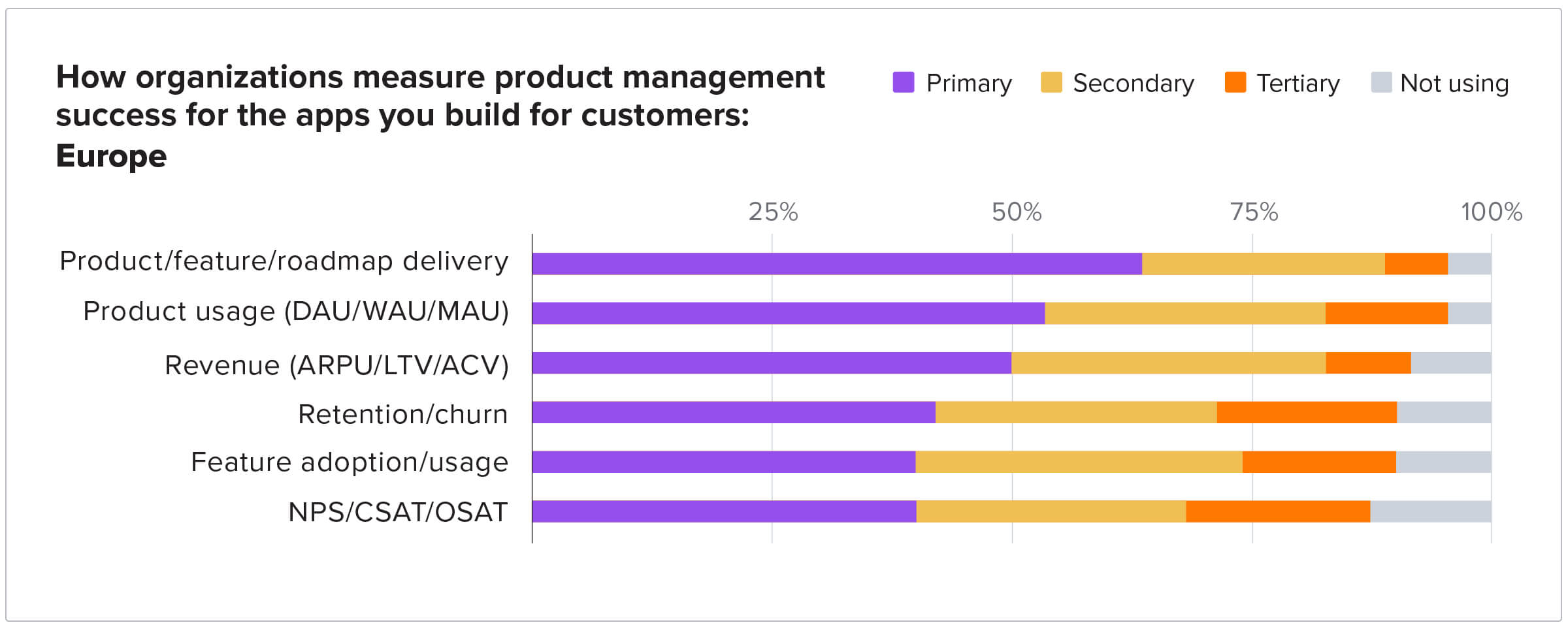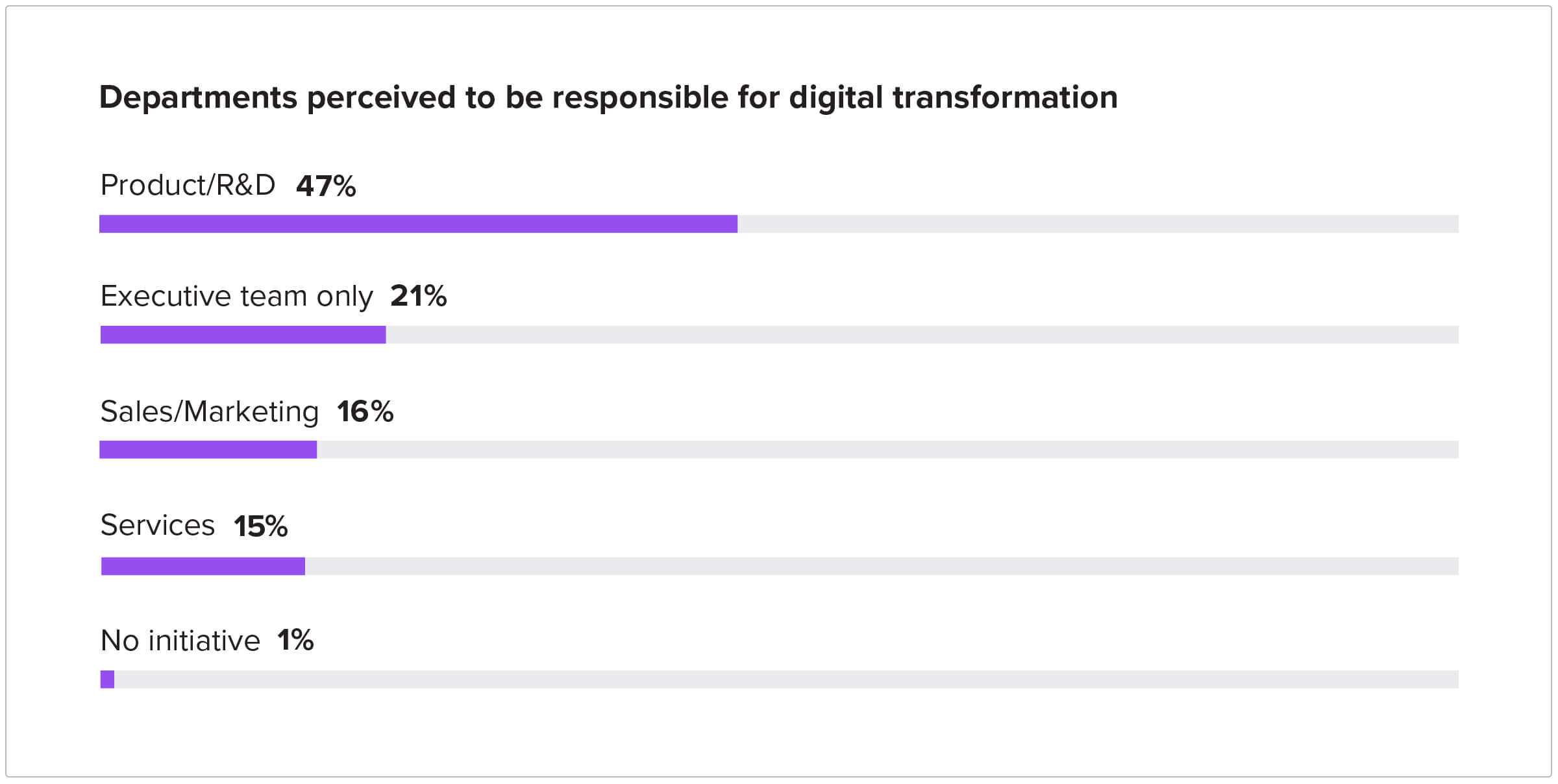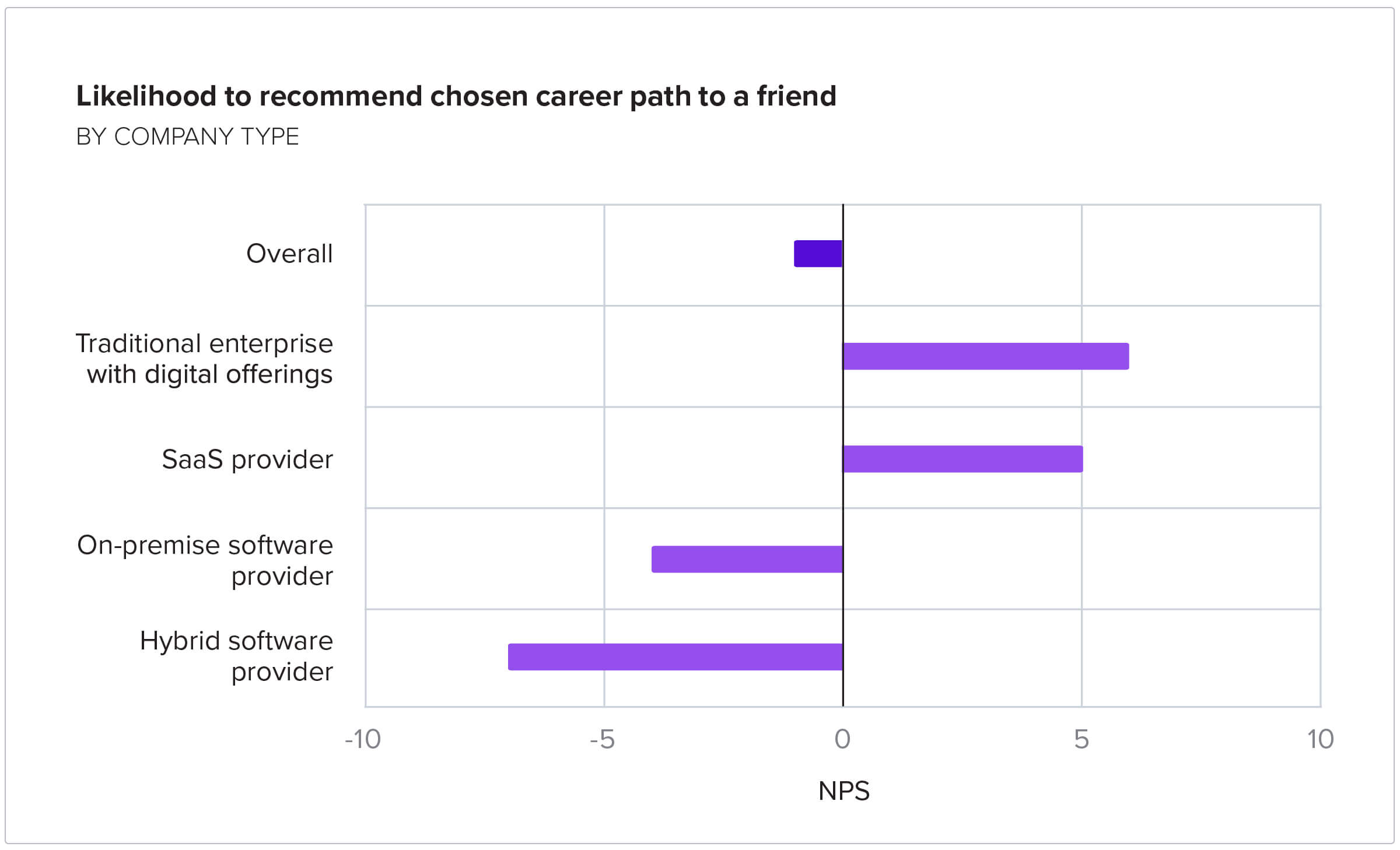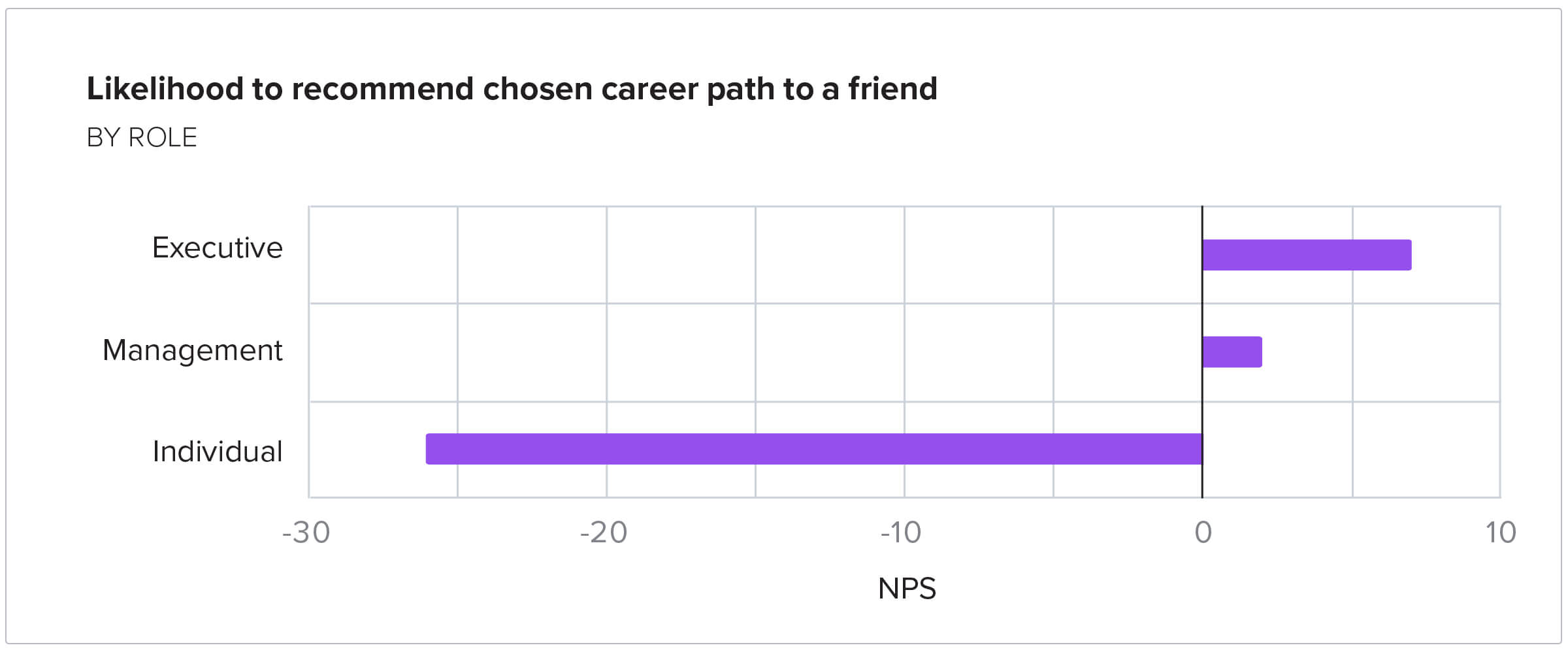Every year, Pendo and Product Collective set out to obtain a better understanding of the discipline of product management, and publish the findings in their annual State of Product Leadership report.
For the third year, they’ve broken out the data from European product managers to offer a version of the report specific to product pros in France, Germany, and the U.K.
So, how do PMs in different parts of Europe differ from each other, and from their global counterparts? The teams at Pendo and Product Collective asked over 300 of them to find out.
A customer-centric focus
Most strikingly, European PMs are, on average, more likely to tie positive revenue outcomes directly to their customer experience and product usage than their peers around the world. For customer-facing applications, 53% of respondents in Europe listed product usage metrics as a primary measure of success, compared to 41% of respondents globally.

In other words, it’s not all about build, release, and move on to the next feature for these PMs. It’s about delivering on the promises they make to customers, getting them to use what they build, and ensuring a consistent, intuitive experience.
Still, two-thirds of European PMs reported being less likely to feel responsible for the product vision or strategy at their organizations than their peers globally, where nearly half of PMs feel like they drive their product’s direction.
Growing responsibility and influence
The influence of European product organizations has also grown significantly due to the ubiquity and proliferation of digital tools and platforms in the business world. Product teams are now considered the vanguard of digital transformation at most organizations, large or small, with 47% of product leaders saying product/R&D is the best suited function for leading these efforts.

But, less than half of respondents said they currently feel responsible or accountable for digital transformation at their companies. Although they are considered to be leaders in this space, European product pros haven’t fully embraced their responsibility for digital transformation.
Despite that, European product teams’ workloads have certainly increased. 33% say they manage more than one product, compared to 29% of global product leaders.
This trend is most pronounced in the U.K., where 43% of product pros say they are responsible for more than one product. This correlates with U.K. product leaders being more responsible for increasing customer adoption metrics than their counterparts in France or Germany.
Satisfaction takes a hit
All of that newfound influence and responsibility comes at a cost, however: Job satisfaction among European PMs is declining under the added pressure—plus, a global pandemic that still rages—and they’re much less happy than their peers around the world.
When asked how likely they’d be to recommend their career path to a friend, European product pros gave an average net promoter score of -1 on a scale of -100 to 100. That’s compared to a global score of 9.

PMs were happiest at traditional enterprises that have digital products, with a score of 6 on average, and SaaS companies came in second with a score of 5. Globally, those scores were 8 and 17, respectively. European PMs at small companies were the most dissatisfied, with an average NPS of -24. Organizations with dedicated product ops teams scored higher on average, with an NPS of 7.
The most dissatisfied PMs of all? There’s a significant gap between individual contributors and management, with ICs in Europe reporting an NPS of -26.

Regionally, PMs working in France reported an NPS of -10. Germans reported 4, and the U.K. reported 2. That’s all compared to a score of 19, on average, for American PMs.
Ready to learn how to use these findings, and more, to make sure your product teams remain empowered to drive your organization’s success? Read the full State of Product Leadership 2021: Europe report.

